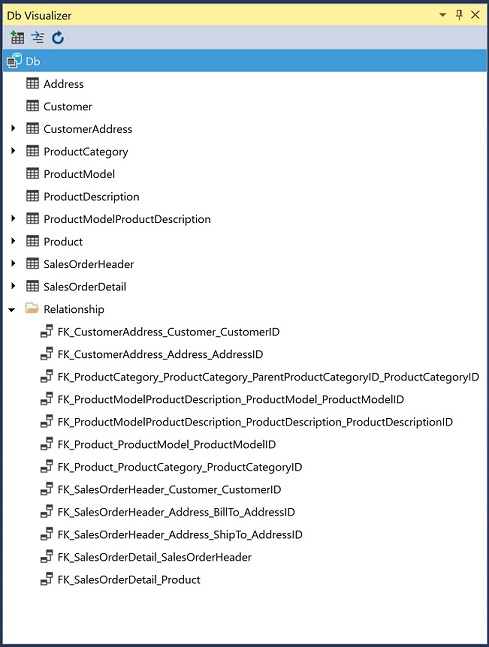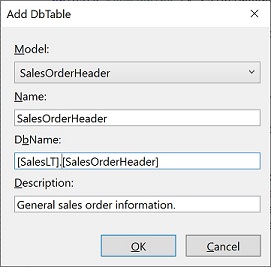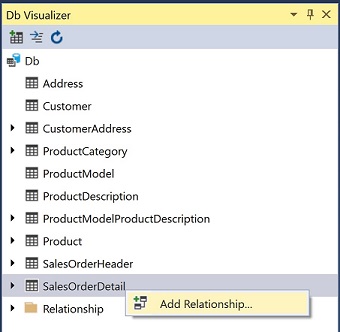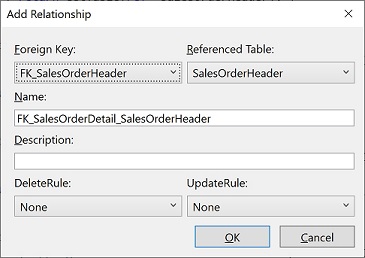Db and DbTable
Database Session
In RDO.Data, a database session is represented by a class which is derived from database session provider such as SqlSession or MySqlSession. This class is normally named as Db by convention, with a connection string and/or database connection as constructor parameter:
public partial class Db : SqlSession
{
public Db(string connectionString, Action<Db> initializer = null)
: base(CreateSqlConnection(connectionString))
{
initializer?.Invoke(this);
}
private static SqlConnection CreateSqlConnection(string connectionString)
{
if (string.IsNullOrEmpty(connectionString))
throw new ArgumentNullException(nameof(connectionString));
return new SqlConnection(connectionString);
}
public Db(SqlConnection sqlConnection)
: base(sqlConnection)
{
}
...
}
The Db object is responsible to make connection and execute commands to the database server.
Database Permanent Table
Database permanent table is readonly property of above Db class, with type of DbTable<T>. Optionally, foreign key relationship can be enforced by a pair of RelationshipAttribute/_RelationshipAttribute and a implementation method. The following code defines two permanent tables SalesOrderHeader and SalesOrderDetail, and relationship between them:
public partial class Db : ...
{
...
private DbTable<SalesOrderHeader> _salesOrderHeader;
public DbTable<SalesOrderHeader> SalesOrderHeader
{
get { return GetTable(ref _salesOrderHeader); }
}
private DbTable<SalesOrderDetail> _salesOrderDetail;
[Relationship(nameof(FK_SalesOrderDetail_SalesOrderHeader))]
public DbTable<SalesOrderDetail> SalesOrderDetail
{
get { return GetTable(ref _salesOrderDetail); }
}
[_Relationship]
private KeyMapping FK_SalesOrderDetail_SalesOrderHeader(SalesOrderDetail _)
{
return _.FK_SalesOrderHeader.Join(SalesOrderHeader._);
}
...
}
The Db class and tables can be manipulated via Db Visualizer tool window. You can show Db Visualizer tool window by clicking menu "View" -> "Other Windows" -> "Db Visualizer" in Visual Studio:

In Db Visualizer tool window, click the left top  button, the following dialog will be displayed:
button, the following dialog will be displayed:

Fill the dialog form and click "OK", code of DbTable definition will be generated automatically.
To add a foreign key, right click the source table in Db Visualizer to show the context menu:

Click context menu item "Add Relationship...", the following dialog will be displayed:

Fill the dialog form and click "OK", code of table relationship will be generated automatically.
Database Temporary Table
A temporary table, as the name suggests, is a database table that exists temporarily on the database server during the life time of the session. Temporary tables are particularly useful when you have a large number of records in a table and you repeatedly need to interact with a small subset of those records. In such cases instead of filtering the data again and again to fetch the subset, you can filter the data once and store it in a temporary table. You can then execute your queries on that temporary table.
You can create temporary tables on-the-fly via Calling CreateTempTableAsync method of your Db class. Once created, you can use it as the same way as permanent tables. You don't need to delete the temporary tables, it will be deleted automatically by the underlying database session provider.